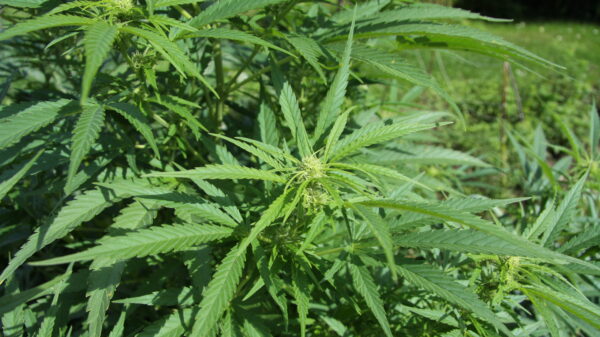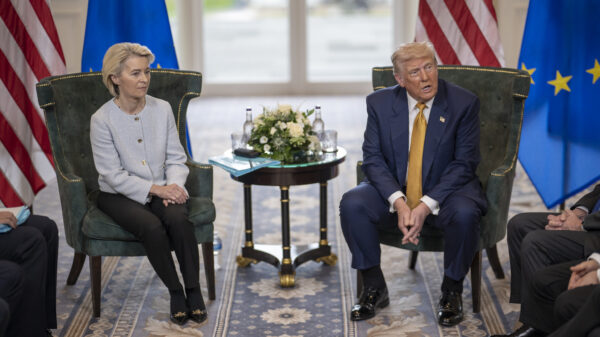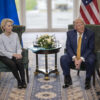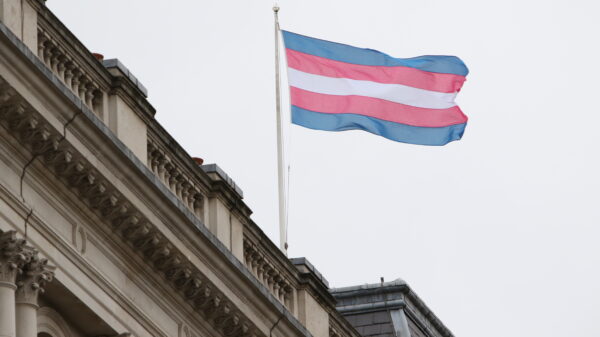Staff writer Kayla Rahman talks to students who have been impacted by the ongoing suffering in Palestine amid the Israel-Hamas war.
Roar spoke to KCL’s affected student body about how the war has impacted their lives, including one Palestinian student who wished to remain anonymous. The other respondents have been named in the following write-up. Roar also interviewed Hassan Ali, VP for Welfare and Community of the KCL Student’s Union (KCLSU), who was recently suspended after posting a statement condemning the organisations lack of public stance on the conflict.
“I think most of the people I know [have] lost maybe tens and twenties of family members personally,” … “And yet, it’s very inspirational to see that they’re very functional still and they are here and there organising Palestinian campaigns at King’s.”
Hassan Ali, reflecting on his Palestinian peers
As of early February, Al Jazeera reports that the death toll in Gaza has surpassed 28,000. Through social media, news reports and circulating online footage, most of us are well aware of what is happening to the people of Gaza right now. For many of our fellow Muslim and Arab peers at King’s, the burden of the crisis rests even heavier upon their shoulders.
The Personal and the Social
Roar: Do you have any connection to the Israel-Palestine conflict/region?
Anonymous Postgraduate: “Yes, Palestinian.”
Hanis: “I would say as a Malaysian we have a long-standing solidarity with Palestinians. I moved to the UAE in middle school, so I have many friends who are Palestinian refugees or whose families came during the Nakba.”
Ased: “My family lives in the Middle East, but not in Occupied Palestine.”
Asmaa: “No.”
R: How has the conflict impacted your life at King’s?
Anon: “Life in London and at King’s became difficult. I couldn’t do anything for a while, I was and still am grieving. Completing everyday tasks and school was challenging. I felt so detached from the world around me wondering how people could go about their day knowing that Palestinians in Gaza are fighting some of the most heinous crimes inflicted upon them. Endless violations of human rights and I could do nothing. Anything I did reminded me of the suffering of Palestine and how that could’ve been me – a reminder of the privilege we experience and how I couldn’t do much alone to stop this.”
Hanis: “I found a new community and friendships particularly in the SJP [Students For Justice For Palestine] group and by raising awareness on social media. However, there is an increase of micro-aggressions both from students and admin which threaten our rights to speak out… The main thing is the overuse of the word ‘terrorism’. Which almost exclusively has targeted Arab and Muslim students.”
Ased: “Negatively, especially since the Student Union’s outrageous decision to suspend three student officers.”
Asmaa: “I have been stopped several times whilst travelling to university for wearing a keffiyeh… I was very conscious of a lot of societies being silenced and unable to voice their opinion which made me feel like the environment we were studying in was not actually free for everyone.”
R: How have your interactions with other students changed since October?
Anon: “Overall positively despite some negative interactions.”
Hanis: “I feel a stronger bond with Muslim and Arab students which I didn’t have before… but with other students, they are more weary of getting into conversations with me about politics.”
Asmaa: “They have changed dramatically, constantly aware that I have to ensure that whatever I say will not be considered ‘antisemitic’ or political as we can get disciplinary action from the uni.”
Safety
R: Do you feel welcome/safe on campus at the moment?
Anon: “Yes.”
Hanis: “I don’t feel like my experience and views as a Muslim are respected on campus. It is easier for me to present myself by assimilating in order to feel welcomed.”
Ased: “Welcome/Safe on campus, [but] not fully welcome to express my views.”
Asmaa: “In the beginning no, but now, I pay no mind to it.”
Public Opinion and Activism
R: How do you feel about the university’s reaction to the conflict escalation?
Anon: “As an academic institution [King’s has] failed its duty to encourage academic discourse.”
Hanis: “I find their policy to be ignorant and apathetic to both student and staff’s concerns. Seeing KCL SJP organise everything from the open letter and memorial of Dr. Maisara showed the failure of the university to care for their students.”
Ased: “We need the university to grow a moral backbone and cut ties, investments and partnerships blatantly on the side of an army that’s committing genocide.”
Asmaa: “There was no reaction at first, we recently got an email… from the head of our department saying that pro-Palestinian views are acceptable and we will not be in trouble.”
R: How do you feel public opinion is changing, if at all, regarding the conflict?
Hanis: “I think the public began to be more responsible and critical about the information they seek, rather than relying on the government or conventional media to truthfully portray the conflict.”
Asmaa: “There’s been no change.”
R: Do you think pro-Palestinian activism will make/already has made any real difference in its efforts?
Anon: “Yes, people have become more aware of the situation and have taken upon themselves to educate and support the cause.”
Hanis: “Yes. With the Palestinian cause in particular I’ve seen a great shift in respect and curiosity for Arab and Muslim knowledge. Many are now coming to know the names of Palestinian academics and scholars such as Edward Said and Mahmoud Darwish. I think activism can create spaces for more Arab/Muslim perspectives that the general public is engaged with. This will hopefully permeate in academic and political spaces.”
Asmaa: “Yes it has.”
Hope?
R: What do you wish the King’s community better understood about your heritage/faith/background?
Anon: “Palestinians/Arabs/Muslims don’t hate Jews. Muslims believe in Judaism. Our problem lies with Zionism – a political ideology.”
Hanis: “I wish the King’s community respected Islam as a progressive, diverse and knowledgeable practice… Knowing every university in Gaza was destroyed should cause great humanitarian concern, especially to those who have the privilege of receiving higher education.”
Asked: “I’d wish Kings’ international community to not be [complicit] in the international community’s failure towards the Palestinian people.”
Asmaa: “Standing up for/supporting Palestinian resistance does not mean that we are terrorist supporters.”
R: What optimism do you have today?
Hanis: “My biggest optimism is my community. Muslims have always had great resilience and perseverance. The solidarity despite our nationalities is proof that shared humanity is not bounded by borders or international order.”
Ased: “I keep my faith and trust in God, because there is no other path exists other than complete reliance on him. As the prayer of the Palestinians goes from tragedy to tragedy, ‘Allah is sufficient for us, the best of helpers’.”
Asmaa: “No optimism, but Rabbina sees all.”
Student Officer Hassan Ali
R: Do you have any personal connection to the conflict?
“Here in the West, the Muslim community is very close knitted [sic], so that’s why we know people from every ethnicity. Religiously as well we are required to form a very close community, so because of that element I have a close connection.”
R: How do you feel about the university’s reaction around the conflict escalation?
“They are trying to maybe be neutral, but I don’t personally think that the way the policies are working, Western institutions are largely neutral. They always do pick a side, and the side is mostly complicit with Israel, but that is also because most institutions in the UK have a lot of investments in Israel, so they can’t automatically release statements against them.”
R: Do you have any comment on the UCU’s vote to reinstate you and the other two officers?
“The UCU is the one organisation which has been most supportive when it comes to us, the suspensions, and the Palestinian cause in general. So I think I really appreciate the UCU.”
R: Do you feel safe on campus at the moment?
“I think I’ve felt safe on campus… because of the overwhelming student support I’ve gotten.”
R: When you look back on your time at King’s in the future, how do you think you’ll feel about this experience?
“I will look back on it positively mainly because… the end game is always about creating impact. And I do feel I was able to create that impact…. it’s about what benefits the movement and what benefits the cause of Palestine.”
R: What optimism do you have today?
“I’m really inspired by the support we have gotten generally, which reflects largely on what students feel or what the upcoming generation feels about Palestine and the movement in general. So generally, in the passage of time, I think Palestine could be liberated because [of] the activism and the enthusiasm I have seen in people our age.”


















